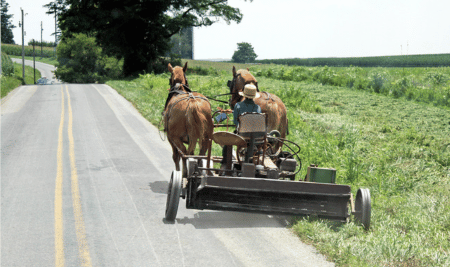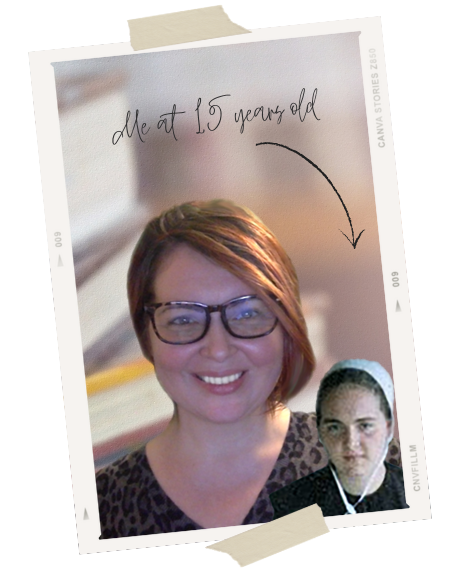What does freedom mean to you? I often ask myself whether I’m really free or not. It’s part of my regular routine in life, like working out and eating healthy (or my constant attempts to do so!).
When I was 15 years old and literally escaping in the middle of the night, I believed freedom to be far more free than what I experienced immediately afterward (in less than a month, the uncle I fled to for my freedom began to repeatedly sexually abuse me), and what I’ve experienced over the decades since.
I also have a philosophy degree, an Ivy League education, travels to 30+ countries, access to current local, national, and geopolitical events, and a New York City environment to inform, shape, and question my ideas about freedom. The way that I’m experiencing freedom right now is actually not too disappointing to pre-escape 15-year-old me. I’ve accomplished a lot of the dreams she had for herself. But the more I learn and grow, the more there is that I want to experience. And stacked against that––what could be––is where the disappointment comes in for current me.
1. So, just what exactly is freedom? And is it different from liberty?
According to the Stanford Encyclopedia of Philosophy (my favorite source for philosophical questions), the words liberty and freedom are used interchangeably by political and social philosophers.
The entry goes on to say that “although some attempts have been made to distinguish between liberty and freedom . . . , generally speaking these have not caught on. Neither can they be translated into other European languages, which contain only the one term, of either Latin or Germanic origin (e.g. liberté, Freiheit), where English contains both.”
First, I love the factoid about other European languages having only one word for the concept of freedom (or liberty!).
Second, that puts to rest the question I’ve had over the past three years about the difference between these two words, especially when talking about religious . . . rights (e.g., religious freedom vs. religious liberty). I’m sure the definitions of these words were addressed in at least one of the philosophy classes I took at Columbia, but clearly I forgot.
2. Now that we got the technical stuff out of the way, what is freedom in a practical, day-to-day sense?
To answer that means to point out that there are actually two philosophical concepts of freedom! According to that same entry in the Stanford Encyclopedia of Philosophy, “negative liberty is the absence of obstacles, barriers or constraints” and “positive liberty is the possibility of acting — or the fact of acting — in such a way as to take control of one’s life and realize one’s fundamental purposes.”
Well, that’s all pretty mumbo jumbo. What do these concepts really mean in real life?
Thankfully, the entry gives a very down-to-earth example to explain:
Imagine you are driving a car through town, and you come to a fork in the road. You turn left, but no one was forcing you to go one way or the other. Next you come to a crossroads. You turn right, but no one was preventing you from going left or straight on. There is no traffic to speak of and there are no diversions or police roadblocks. So you seem, as a driver, to be completely free. But this picture of your situation might change quite dramatically if we consider that the reason you went left and then right is that you're addicted to cigarettes and you're desperate to get to the tobacconists before it closes. Rather than driving, you feel you are being driven, as your urge to smoke leads you uncontrollably to turn the wheel first to the left and then to the right. Moreover, you're perfectly aware that your turning right at the crossroads means you'll probably miss a train that was to take you to an appointment you care about very much. You long to be free of this irrational desire that is not only threatening your longevity but is also stopping you right now from doing what you think you ought to be doing. This story gives us two contrasting ways of thinking of liberty. On the one hand, one can think of liberty as the absence of obstacles external to the agent. You are free if no one is stopping you from doing whatever you might want to do. In the above story you appear, in this sense, to be free. On the other hand, one can think of liberty as the presence of control on the part of the agent. To be free, you must be self-determined, which is to say that you must be able to control your own destiny in your own interests. In the above story you appear, in this sense, to be unfree: you are not in control of your own destiny, as you are failing to control a passion that you yourself would rather be rid of and which is preventing you from realizing what you recognize to be your true interests. One might say that while on the first view liberty is simply about how many doors are open to the agent, on the second view it is more about going through the right doors for the right reasons.
To summarize the entry:
Negative freedom = You are free if no one is stopping you from doing whatever you might want to do.
Positive freedom = To be free, you must be self-determined, which is to say that you must be able to control your own destiny in your own interests.
Frankly, this is super disappointing. Per these definitions, freedom is completely unattainable. The idea of being free or having freedom is one of the biggest scams we’re sold as Americans or humans.
3. Which brings me to my final question, why is freedom important?
My initial response to that is that it’s an irrelevant question, given that freedom is a myth, scam, lie, etc. However, there’s a way to soften the disappointment and even restore a sense of empowerment. And that’s to think of rights instead of freedom. It took me 25 years to get this.
I now realize that I’d been taken for a ride, robbed of billions worth of emotional and psychological energy and well-being, duped into chasing after the ever illusive concept of freedom for most of my life to date. Despite seeing the light more and more over time, I kept clinging to the belief that there was a sliver of possibility in actually realizing freedom. All along, the focus should have been on rights instead.
Yes, I know the line, “the right to life, liberty, and the pursuit of happiness”. I call b.s. on that. What I mean by rights instead of freedom (or life or happiness) is that rights are things we can actually produce and enforce. Anything outside of that is meaningless and just leads to the opposite of what the nebulous right is supposed to give us.
But, knowing all of this doesn’t mean that I’ve rid myself of all feelings of imprisonment or choicelessness.
Now What?
One of the strategies I use to help mitigate those feelings (when the topic of rights isn’t doing the trick) is to have regular, deep conversations with people who are older than I am. E.g., Every so often I attend a conference or discussion group with people who are 60+. Often the things they talk about are the same things that challenged me when I was 15, in my 20s, in my 30s, and now in my 40s.
What I’m seeing from those conversations are that some things (e.g., relationships, partnerships, human psychology, emotional needs, etc.) never go away, or never get solved. That those issues still challenge me doesn’t mean that I haven’t been successful, or that I’m not theoretically free, or that I’m trapped somehow. Some things I don’t like will never go away because it’s a fundamental building block of what a human is.
Yes, it’s still disappointing. It’s also nice to know that it’s not something I have to fault myself for, or try to solve or fix.
To education and children’s rights,
Torah
Executive Director, Amish Heritage Foundation


